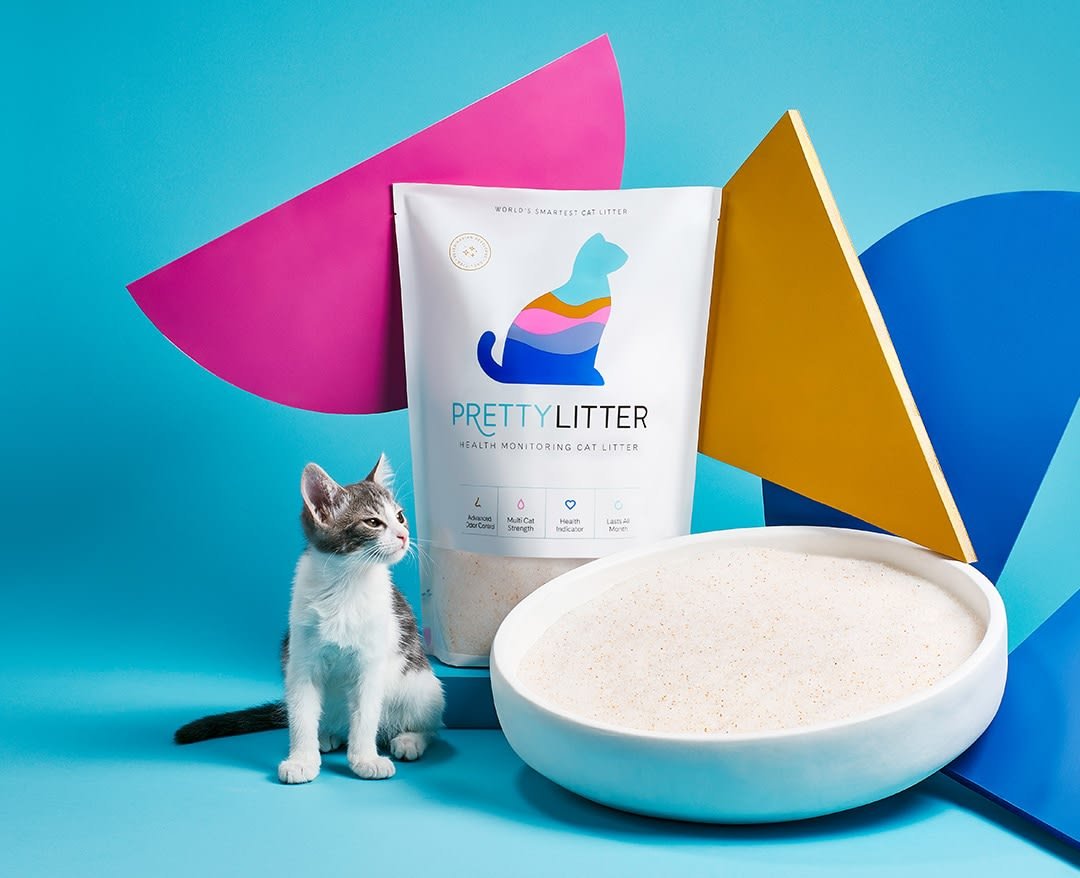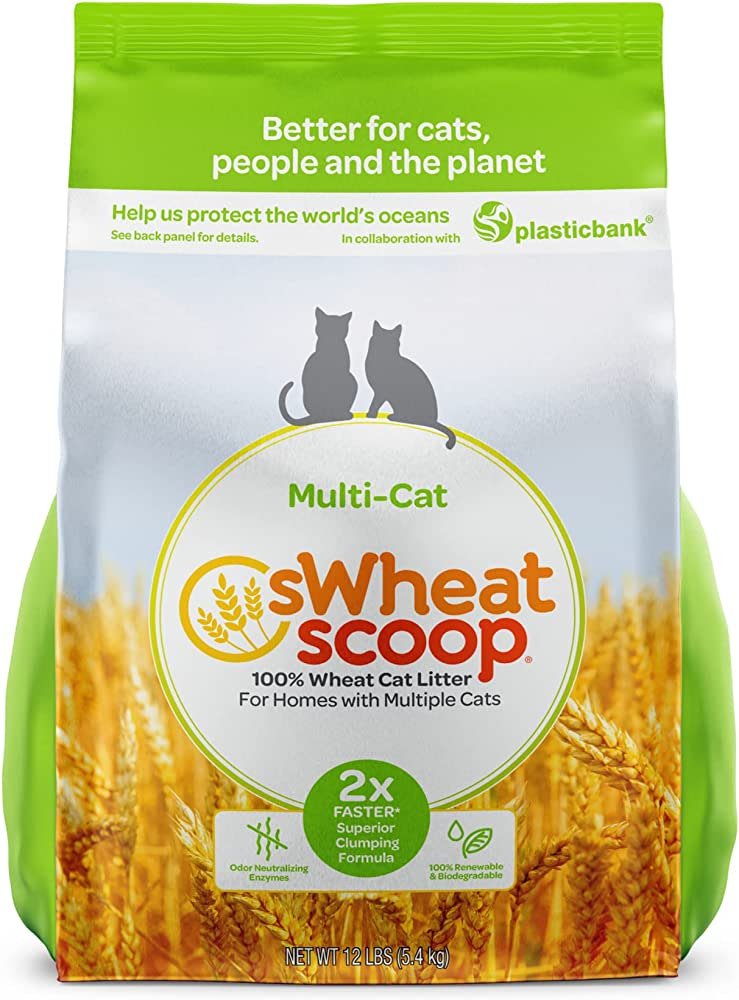The Ultimate Guide to Choosing the Best Cat Litter
nine different types of cat litter, and how to choose which one is best for you!
If you're a cat owner, you know that choosing the right cat litter can make a world of difference. Not only does it affect your cat's daily habits and comfort, but it can also impact your home's cleanliness and odor control. But with so many options on the market, how do you know which type of litter is the right one for you and your feline friend? In this article, we'll explore some of the most popular types of cat litter, their pros and cons, and help you find the perfect fit for your unique needs and preferences. So sit back, relax, and let's dive into the world of cat litter!
1. Clay Litter
Pros: Clay litter is one of the most popular types of cat litter on the market. It is affordable and easily accessible. It is also highly absorbent and efficient at controlling odors.
Cons: Some people find clay litter dusty and prone to tracking throughout the house. Additionally, clay litter is not biodegradable and can contribute to landfill waste.
The Bottom Line: Clay litter might be right for you if you're looking for an affordable option that effectively controls odors, but don't mind the dust or the fact that it's not eco-friendly.
If you’re interested in Clay Litter, you might like…
2. Clumping Litter
Pros: Clumping litter is a type of clay litter that forms clumps when it comes into contact with urine or feces. These clumps can be easily scooped out, leaving the remaining litter in the box. Clumping litter is also effective at controlling odors and is generally simpler to clean than non-clumping litter.
Cons: Like traditional clay litter, clumping litter can be dusty and track around the house. In addition, some cats may consume clumping litter, causing digestive issues.
The Bottom Line: Clumping litter might be right for you if you're looking for an option that's easy to clean and effectively controls odors, but you don't mind the dust or the fact that some cats may eat it.
If you’re interested in Clumping Litter, you might like…
3. Pine Litter
Pros: Pine litter is made from compressed sawdust and is an eco-friendly alternative to traditional clay litter. It is biodegradable and can be composted. Pine litter is also effective at controlling odors and is less dusty than clay litter.
Cons: Some cats may dislike the scent of pine litter and may refuse to use it.
The Bottom Line: Pine litter might be right for you if you're looking for an eco-friendly option that effectively controls odors and is less dusty, but your cat is not sensitive to the scent of pine.
If you’re interested in Pine Litter, you might like…
4. Recycled Paper Litter
Pros: Recycled paper litter is made from recycled paper products and is also an eco-friendly option. It is highly absorbent and efficient at controlling odors. Recycled paper litter is less dusty than clay litter and does not track as much.
Cons: Recycled paper litter can be more expensive than traditional litter and may not be as widely available.
The Bottom Line: Recycled paper litter might be right for you if you're looking for an eco-friendly option that's highly absorbent, efficient at controlling odors, and less dusty, but you're willing to spend more money.
If you’re interested in Recycled Paper Litter, you might like…
5. Corn Litter
Pros: Corn litter is made from corn cobs and is biodegradable and eco-friendly. It is highly absorbent and controls odors well. Corn litter is also dust-free, making it a great option for cats with respiratory issues.
Cons: Corn litter can be more expensive than traditional litter and may not be as widely available. Some cats may dislike the scent or texture of corn litter.
The Bottom Line: Corn litter might be right for you if you want an eco-friendly and dust-free option that effectively controls odors, but you're willing to spend more money and your cat doesn't mind the scent or texture.
If you’re interested in Corn Litter, you might like…
6. Walnut Shell Litter
Pros: Walnut shell litter is made from crushed walnut shells and is biodegradable and eco-friendly. It is highly absorbent and controls odors well. Walnut shell litter is also low-dust and does not track as much as clay litter.
Cons: Walnut shell litter can be more expensive than traditional litter and may not be as widely available. Some cats may dislike the scent or texture of walnut shell litter.
The Bottom Line: Walnut shell litter might be right for you if you want an eco-friendly and low-dust option that effectively controls odors, but you're willing to spend more money and your cat doesn't mind the scent or texture.
If you’re interested in Walnut Shell Litter, you might like…
7. Crystal litter
Pros: Crystal litter is made from silica gel and is highly absorbent, controlling odors well. It is also low-dust and does not track as much as clay litter. Crystal litter lasts longer than other types of litter and requires less frequent scooping.
Cons: Crystal litter can be more expensive than traditional litter and may not be as widely available. Some cats may dislike the texture of crystal litter.
The Bottom Line: Crystal litter might be right for you if you want a highly absorbent and low-dust option that lasts longer than other types of litter, but you're willing to spend more money and your cat doesn't mind the texture.
If you’re interested in Crystal Litter, you might like…
8. Tofu Litter
Pros: Tofu litter is made from the byproducts of tofu production and is therefore eco-friendly and biodegradable. It is highly absorbent and effectively controls odors. Tofu litter is also dust-free, making it a great option for cats with respiratory issues.
Cons: Tofu litter can be more expensive than traditional litter and may not be as widely available. Some cats may dislike the scent or texture of tofu litter.
The Bottom Line: Tofu litter might be right for you if you want an eco-friendly and dust-free option that effectively controls odors, but you're willing to spend more money and your cat doesn't mind the scent or texture.
If you’re interested in Tofu Litter, you might like…
9. Wheat Litter
Pros: Wheat litter is a natural, biodegradable option that is made from renewable resources. It is highly absorbent and effectively controls odors. Wheat litter is also dust-free, making it a great option for cats with respiratory issues. Some brands also clump well, making it easy to scoop and dispose of waste.
Cons: Wheat litter can be more expensive than traditional litter and may not be as widely available. Some cats may dislike the scent or texture of wheat litter.
The Bottom Line: Wheat litter might be right for you if you want an eco-friendly and dust-free option that effectively controls odors, but you're willing to spend more money and your cat doesn't mind the scent or texture. Additionally, if you prefer clumping litter for easy waste disposal, be sure to choose a brand that clumps well.
If you’re interested in Wheat Litter, you might like…
Choosing the right cat litter is an important decision that can affect both you and your cat's daily life. Each type of cat litter has its own unique advantages and disadvantages, so it's important to weigh the pros and cons carefully before making a decision. If you prioritize affordability and availability, clay litter might be the best option for you. If you're looking for an eco-friendly option, biodegradable litters like corn and walnut shell litter may be a good fit. Alternatively, if you prioritize odor control and longevity, crystal litter may be the best choice. Ultimately, the right cat litter depends on your specific needs and preferences, as well as your cat's comfort and behavior. By considering the factors discussed in this article, you can make an informed decision and ensure a happy and healthy living environment for you and your feline friend.











